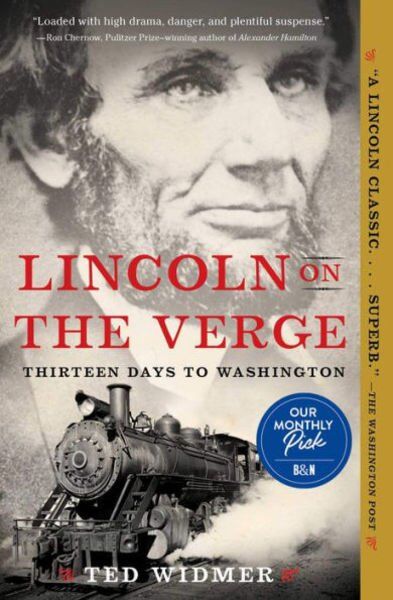BOOKS: Lincoln on the Verge: Ted Widmer
Published 9:30 am Saturday, April 24, 2021

- Lincoln on the Verge
So much can be read into just the title of Ted Widmer’s excellent book: “Lincoln on the Verge.”
Lincoln on the verge of the presidency.
Lincoln and the nation on the verge of full-scale disunion.
Lincoln on the verge of becoming the commander in chief of a violent Civil War.
Lincoln on the verge of emancipation.
Lincoln on the verge of being Lincoln.
In “Lincoln on the Verge: Thirteen Days to Washington,” Widmer not only takes readers on a journey following Lincoln’s progress from his home in Illinois to Washington, D.C., for the presidential inauguration, he takes us on a stirring journey into the histories of many aspects of mid-19th century life – trains and railroads, for example; into the backstories of multiple towns and cities along the route; into the deepening divide of the nation and the secession of states to form the Confederacy, even following Jefferson Davis as he makes a similar, shorter and less oratorically substantial journey to become the Confederate president.
A journey into the soul of a divided nation and into the ever-evolving heart of a man – not a marble god on a dais – but a man who seemingly begins realizing the depths of his character as he draws closer to the massive challenges facing America, his presidency and him.
Widmer never forgets there is a flesh-and-blood human being at the center of “Lincoln on the Verge” but also never lets the reader forget the epic qualities of the man and this story. Each chapter opens with a line from Homer’s “The Odyssey.” And while brave Ulysses spent 20 years making his way home, Lincoln’s 13 days is no less revealing, no less an odyssey in Widmer’s capable research and narrative.
President James Buchanan allows the nation to disintegrate in the weeks prior to Lincoln’s arrival. On his journey, Lincoln must contend with the ominous threat of that disintegration while handling massive crowds; farcical situations from a misplaced speech to height contests with other tall men; threats and assassination plots; lessons from ghosts of the past including the towering memory of the Founders and the monumental lessons of George Washington towering over them all in the nation’s history and in Lincoln’s heart and mind.
And in the end, in a mix like Ulysses deceiving Troy by secretly entering the city within the Trojan horse and decades later finally returning home in disguise, Lincoln enters Washington hidden in a nondescript train while in disguise.
Most Lincoln books mention his journey to Washington, as well as the assassination plot and entering the capital city in disguise, but few bring the meaning of depth to the journey as Widmer does. Few invest such time and research into revealing the nation as it stood and faltered during those two weeks in the mid-19th century or the heart of the man at the center of that journey.
Widmer does not really wrestle with Lincoln’s eventual thoughts and actions on slavery or disunion; rather, he deals with the Abraham Lincoln aboard that train. That Lincoln on the verge. A self-made man who never stopped making himself. Who seems to have always been on the verge.
The evolving Lincoln.
Widmer reveals that even as he made his way to the presidency, he was always becoming the figure we hold up in our collective national psyche. He was always becoming that more perfect Lincoln.



